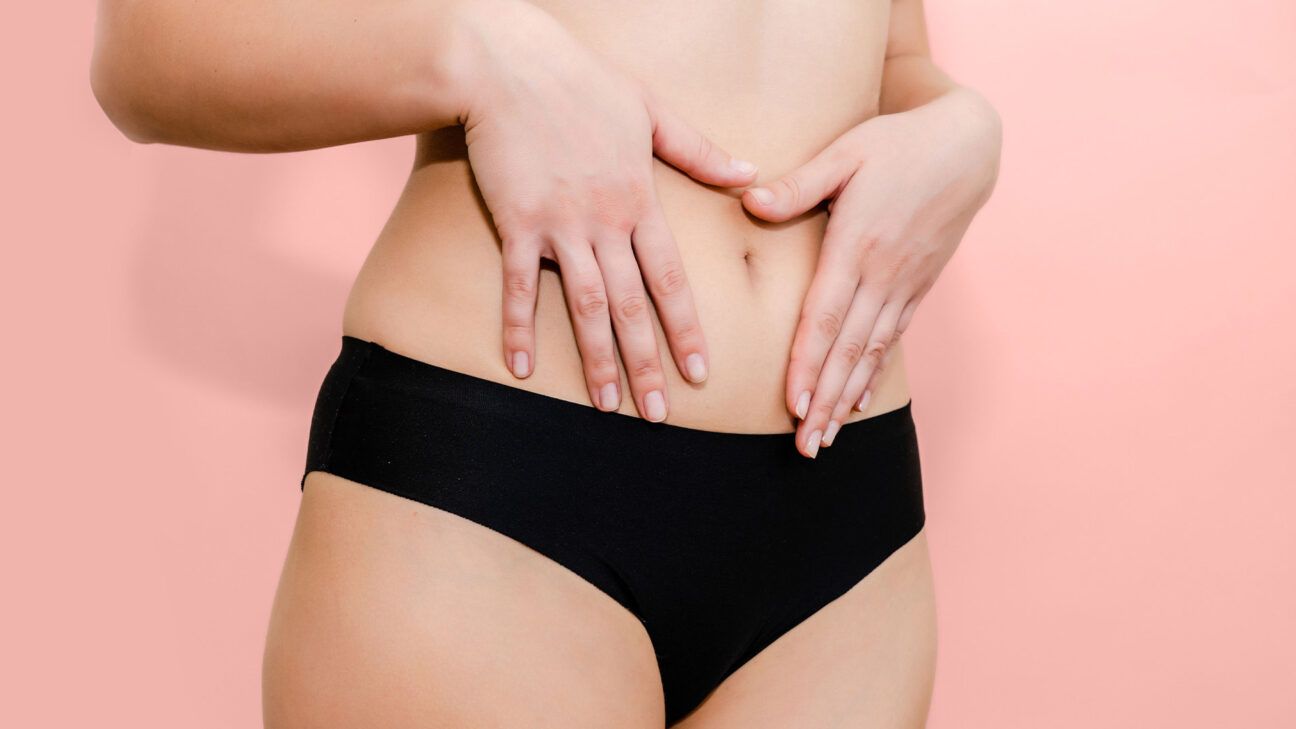
- The navel oiling trend (also known as navel pulling), which involves oiling the belly button and surrounding abdomen, has amassed over 11.5 million views on TikTok.
- Proponents claim that applying oil to this area can improve many health concerns, as well as promoting weight loss and stress relief.
- Experts say there is no scientific evidence to support these claims.
- Instead they recommend turning to proven methods, like eating less processed foods and getting regular exercise as ways to improve your overall health.
Another questionable health trend has grown popular on TikTok. This time it’s navel oiling.
Also known as navel pulling, this trend involves massaging a few drops of oil onto your navel — and influencers say it has a wealth of health benefits.
The practice is nothing new. It’s actually based on Ayurvedic methods, a historic medical system from India that involves applying different kinds of oils — like caster, peppermint, and ginger oil — to the belly button and surrounding abdomen.
However, it’s recently taken off on TikTok with the hashtag navel oiling amassing over 11.5 million views.
As navel oiling has grown in popularity, so too have the questionable health claims, with social media users suggesting it can treat everything from hernias and cysts to fibroids, and endometriosis.
Meanwhile, others say it can promote weight loss and relieve stress.
In some instances, influencers are discussing the supposed benefits of these products while encouraging followers to buy their products.
“Suggesting oil can cure these issues is irresponsible and detrimental to people who are suffering as there is no scientific evidence to suggest it can,” says Dr. Sarah Jenkins, a GP and women’s health expert.
She says many of the claims about navel oiling center on health concerns that are highly complex and need scientifically proven interventions.
One reason proponents are touting navel oiling as a “miracle therapy” is because they say the belly button has over 70,000 veins that extend throughout the entire body.
Dr. Gabrielle McCauley says this simply isn’t true.
“The belly button is essentially a scar that remains after the umbilical cord — which provided the fetus with oxygen and nutrients — has been cut,” she explains.
“It contains blood vessels, with the umbilical cord typically made of one vein and two arteries. However, this is not equivalent to the claimed 70,000 veins.”
Jenkin concurs. She says, “The belly button is a healed remnant from the attachment to the placenta. It is a skin landmark and nothing more.”
In other words? There’s nothing to suggest that oiling this area can influence other areas of the body.
Can navel oiling help you shed unwanted weight as some people online are claiming? Don’t count on it.
“Weight loss is all about energy input and output,” points out Jenkins, who adds that the quality of calories also makes a difference.
There are no studies supporting the link between navel oiling and weight loss, however, there are many confirming the link between a calorie deficit and weight loss.
A
However, many other factors play a crucial role, which is why weight loss requires individualized strategies for the best results.
Like Jenkins, McCauley says she is not aware of any direct mechanism whereby navel oiling can induce weight loss.
“That said, if someone is chronically stressed, it is possible that through the release of the stress hormone cortisol, their blood sugar regulation is off. This can lead to increased fat deposit in the body, especially around the abdominal region,” she explains.
In theory, if stress is a contributing factor to a person’s weight gain and they find navel pulling to be a significant stress reliever, the practice could help them lose weight — but only if they make the necessary dietary modifications as well.
As McCauley suggests, the one area where navel oiling may prove beneficial is for mental health.
For some people, taking a few moments out of their day to mindfully massage oil into the skin may help to relieve stress.
“Science supports the idea that reducing stress levels is important for whole health, due to stress hormones that can be released like cortisol and adrenaline which have downstream effects on parts of the body and hormone levels,” McCauley explains. “Therefore I would not be surprised if a relaxing activity such as navel pulling helped to reduce stress levels as part of a holistic approach to wellness, and in turn have a positive effect on your overall wellbeing.”
It can be easy to fall victim to grand health claims online, but both experts recommend relying on proven methods when it comes to improving your overall health and wellbeing.
Jenkins says there is absolutely no such thing as a “miracle therapy” and that claims navel pulling can improve a variety of health concerns are irresponsible and unsubstantiated.
Instead, she believes there’s a lot to be said about the benefits of eating a good diet of non-processed foods, getting regular exercise, reducing your alcohol, and improving stress management.
Navel oiling is unlikely to do you any harm, but aside from having a calming effect, it’s unlikely to do your overall health and wellbeing any good either.
Moreover, it’s important to be wary of health claims you find on social media.
“Remember, influencers who promote such trends may have financial incentives, and relying on influencers for credible health information should not be your first and only source,” McCauley points out.
Ultimately, she says it’s important that you see your own medical provider for individual health advice.
